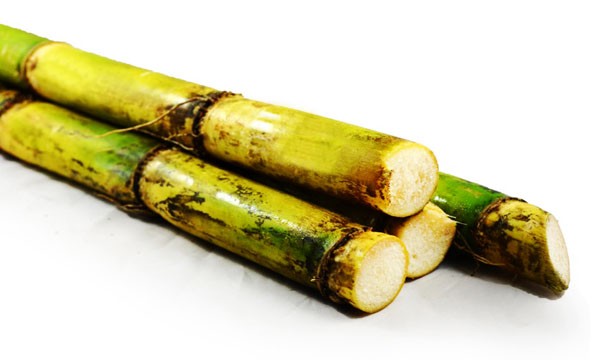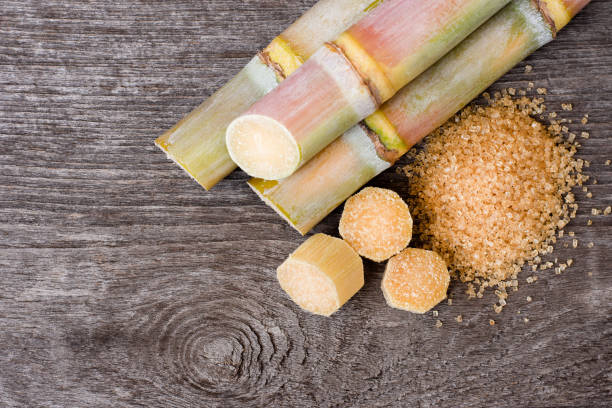Sugar and Cane: Exploring Their Role in Traditional and Modern Cuisine
Sugar and Cane: Exploring Their Role in Traditional and Modern Cuisine
Blog Article
Why Walking Stick Sugar Handling Chemicals Are Important for Modern Sugar Refining
The function of walking cane sugar processing chemicals in contemporary sugar refining can not be overemphasized, as they are important to enhancing both the effectiveness of extraction and the general high quality of the final product. Agents such as phosphoric acid and particular flocculants are employed to eliminate impurities, resulting in sugar that not only meets consumer expectations but also adheres to industry requirements.
Function of Handling Chemicals
The efficacy of walking stick sugar processing pivots considerably on the critical application of processing chemicals. These chemicals play a pivotal role in improving the efficiency and quality of sugar extraction and refining. From the first phases of juice removal to the final filtration actions, processing chemicals help with various vital operations.
In the extraction phase, chemicals such as phosphoric acid and calcium hydroxide are used to maximize the information procedure, assisting to eliminate impurities and put on hold solids from the walking cane juice. This not only improves the return but also makes sure the clearness of the last item. In addition, representatives like flocculants aid in the quick settling of pollutants, thereby streamlining the total process.
As the handling breakthroughs, chemicals are used in decolorization and crystallization phases. Activated carbon and ion exchange materials serve to remove color and smell, guaranteeing that the polished sugar satisfies consumer top quality requirements. Inevitably, the function of handling chemicals prolongs past operational performance; they considerably influence the sensory qualities of the final product, adding to market competitiveness. Hence, the meticulous choice and application of these chemicals are vital for accomplishing optimum results in walking cane sugar processing.
Key Sorts Of Chemicals
Walking stick sugar handling counts on a variety of crucial chemicals that assist in each phase of manufacturing. These chemicals play vital duties in clearing up, whitening, and detoxifying the sugar removed from walking stick.
One primary classification of chemicals consists of flocculants, such as polyacrylamide, which help in the information procedure by advertising the gathering and settling of pollutants. In addition, calcium hydroxide is usually used to neutralize level of acidity and assist in the elimination of non-sugar parts.
Lightening representatives, such as turned on carbon and sulfur dioxide, are made use of to decolorize the syrup, causing a more clear last product. These chemicals assist remove shade substances that might impact the sugar's look and bankability.
In addition, phosphoric acid functions as a pH regulatory authority throughout the handling stages, making sure optimal problems for the chemical activities included in sugar extraction and filtration.
Various other important representatives include edta (ethylenediaminetetraacetic acid), which chelates steel ions that might catalyze unwanted reactions, and salt hydroxide, which helps in pH control throughout the refining process. Jointly, these chemicals enhance performance and make sure a high-grade walking stick sugar product.
Advantages for Sugar Quality
Usually ignored, using details processing chemicals dramatically improves the overall top quality of cane sugar. These chemicals play a crucial function in refining processes, making sure that the end product fulfills rigid market criteria for purity and preference.

In addition, refining chemicals assist in accomplishing a constant granulation and structure, which are important for customer approval. By managing the formation process, these chemicals make sure that the sugar crystals create consistently, causing an extra enticing item that liquifies well in different applications.
Furthermore, making use of these chemicals can enhance the rack life of cane sugar by minimizing dampness absorption and microbial development. In general, the strategic application of handling chemicals is necessary for providing premium walking stick sugar that satisfies consumer expectations and industry needs.
Ecological Effect Considerations

Additionally, the energy-intensive nature of sugar refining, intensified by chemical use, often results in enhanced carbon discharges. This adds to environment modification and discover this elevates problems regarding the sustainability of current refining methods. Furthermore, the sourcing of these chemicals may include methods that endanger biodiversity, such as monoculture farming, which minimizes the durability of farming ecological communities.

To reduce these impacts, sugar refiners are progressively discovering lasting choices and embracing finest practices that minimize chemical use. Applying extensive environmental management systems can aid make sure that the refining process aligns with environmental criteria and advertises biodiversity. Eventually, a balanced method that prioritizes both sugar quality and environmental stewardship is important for the long-lasting feasibility of the sugar sector.
Future Fads in Refining
As the sugar market faces the ecological difficulties linked with traditional refining approaches, innovative methods are arising to enhance both efficiency and sustainability. One substantial pattern is the adoption of environment-friendly chemistry principles, which focus on making use of safe, eco-friendly handling chemicals. This change not just minimizes ecological effect but additionally addresses consumer need for cleaner manufacturing techniques.
One more encouraging advancement is the execution of advanced filtering technologies, such as membrane layer splitting up and adsorption processes. These methods improve the clearness and top quality of the sugar while decreasing the quantity of wastewater generated during refining. In addition, the integration of electronic technologies, including IoT and AI, is changing important link functional efficiency by making it possible for real-time monitoring and anticipating maintenance, thus reducing resource waste.
Furthermore, the usage of by-products from sugar refining, such as bagasse and molasses, is acquiring traction. These products can be transformed right into biofuels or value-added products, adding to a round economy within the market. Jointly, these fads signal a shift in the direction of even more lasting practices that not only improve functional performance but also line up with international sustainability objectives, making sure the future feasibility of sugar refining.
Verdict
Walking cane sugar processing chemicals are crucial in modern-day sugar refining, significantly improving the effectiveness and high quality of sugar extraction. The tactical use these chemicals not only enhances the purity and flavor of the final item but also ensures constant crystallization and structure. As the market progressively focuses on sustainability, the adoption of environmentally-friendly processing agents is likely to shape future patterns in refining, eventually bring about better products and extended service life for consumers.

Eventually, a well balanced approach that prioritizes both sugar high quality and ecological stewardship is important for the long-lasting stability of the sugar industry.
Walking stick sugar handling chemicals are crucial in modern sugar refining, dramatically boosting the efficiency and high quality of sugar removal.
Report this page